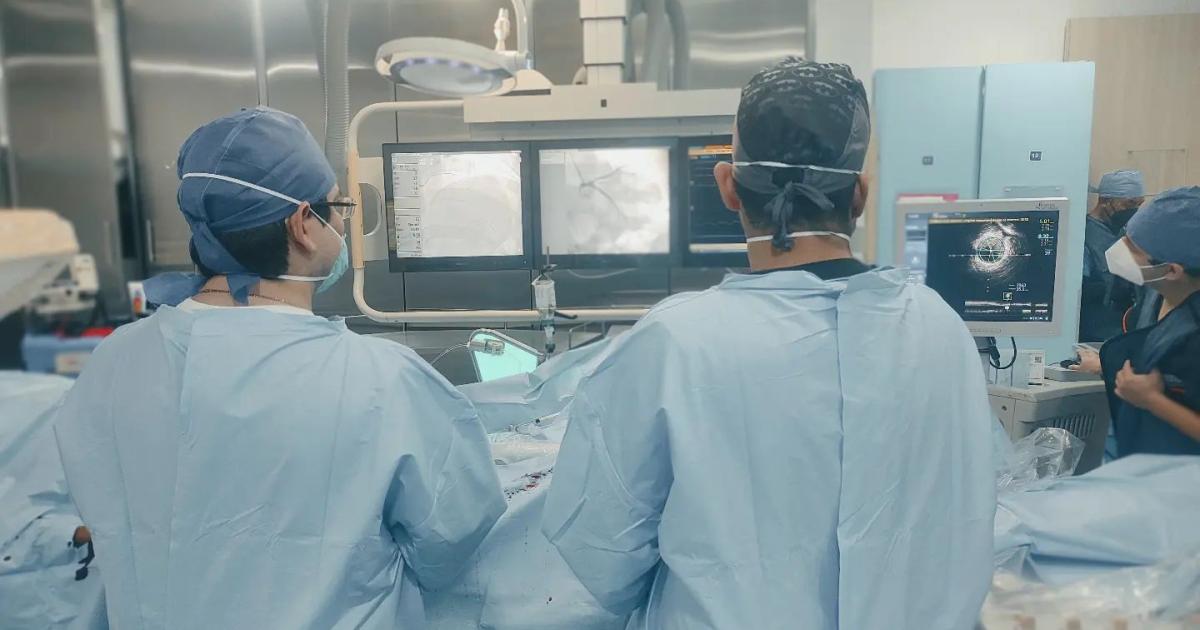Cardiovascular
PCI before TAVR fails to improve patient outcomes
Overall, the study’s primary outcome—a composite of death, myocardial infarction or cardiac arrest within 30 days—was seen in 2.8% of PCI patients and 2% of patients who did not undergo PCI. This was even true in patients presenting with hemodynamically significant left main (LM) disease or proximal left anterior descending (pLAD) disease.
In addition, a detailed comparison of the two groups that examined multiple other in-hospital, 30-day and one-year outcomes failed to identify many benefits of pre-TAVR PCI. A Kaplan-Meier survival analysis did show a “nonstatistically significant trend toward higher mortality” in the PCI group after one year, but that was the most notable difference the authors detected.
“Our results indicate that PCI within 12 months from TAVR does not mitigate adverse cardiovascular outcomes, regardless of the presence of anginal symptoms on presentation, or in patients with proximal obstructive coronary disease (LM/pLAD), which have been recommended to be intervened on by current guidelines,” the authors wrote. “Before the consideration of TAVR, the contemporary multidisciplinary heart team approach should include discourse on the longitudinal management of coinciding coronary disease as part of the lifetime management of aortic valve disease.”
The group also noted that their findings suggest there are other aspects of pre-TAVR care that may need to be reconsidered.
“Our results beg the question of whether pre-TAVR baseline coronary angiography is even necessary,” the authors wrote. “Some centers use clinical assessment when deciding whether a patient would benefit from obtaining a coronary angiogram before TAVR. This decision frequently depends on the patient’s anginal symptoms and, more notably, their surgical candidacy, where, if significant CAD was discovered, could alter the global approach to treatment (e.g., transition from TAVR to combined surgical aortic valve replacement and coronary artery bypass grafting).”
Read the full study here.

